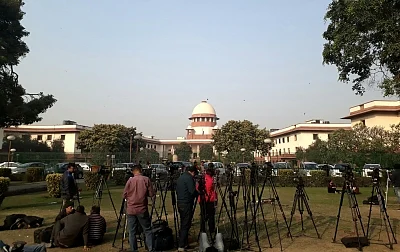By Sumit Saxena
New Delhi, July 16 (IANS) The 10th Schedule of the Indian Constitution, which is popularly referred to as the 'Anti-Defection Law', was at the centre-stage, as arguments began in the Supreme Court on the petitions in the ongoing political crisis in Karnataka.
Fifteen MLAs from the ruling JD(S)-Congress alliance moved the court seeking court's direction to the Speaker to accept their resignation from the Legislative Assembly. Following this, counter petitions were filed by the Karnataka Chief Minister and the Assembly Speaker.
A bench headed by Chief Justice Ranjan Gogoi posed a question: "You (counsel for the Karnataka Speaker) say the resignation of the MLAs is to defeat the anti-defection law; and you (MLAs' counsel) say that 10th Schedule was invoked to curtail my right to resign." The court made this point after hearing both parties at length.
The 10th Schedule was inserted in 1985 by the Amendment to the Constitution. 'Defection' has been defined as "to abandon a position or association, often to join an opposing group."
Most of the MLAs voluntarily resigned on or before July 6, therefore the Speaker should accept their resignation, contended counsel for the MLAs. The Karnataka Speaker argued that resignation was tendered by MLAs, through personal appearance, on July 11, a day after a disqualification petition was filed against them. Therefore, disqualification comes first, as these MLAs will defect to the opposition party.
The scope of the anti-defection law was heavily cited by counsels representing the Karnataka Assembly Speaker and the Chief Minister.
In this case, the court had said the grounds of disqualification are specified in Paragraph 2 of the Tenth Schedule. The provision provides two cases wherein the disqualification is applicable: first, when there is a voluntarily giving up of a seat by the member; second, when the member votes (or abstains from voting) contrary to the directive issued by the party.
The court held that these provisions are perfectly valid, and it does not suffer from the vice of subverting democratic rights of elected members of Parliament and the Legislative Assembly. Also, it does not violate their freedom of speech, freedom of vote and conscience.
The Supreme Court will pronounce its order on this contentious issue on Wednesday.
(Sumit saxena can be contacted at sumit.s@ians.in)
--IANS
ss/prs
(This story was auto-published from a syndicated feed. No part of the story has been edited by The Quint.)
